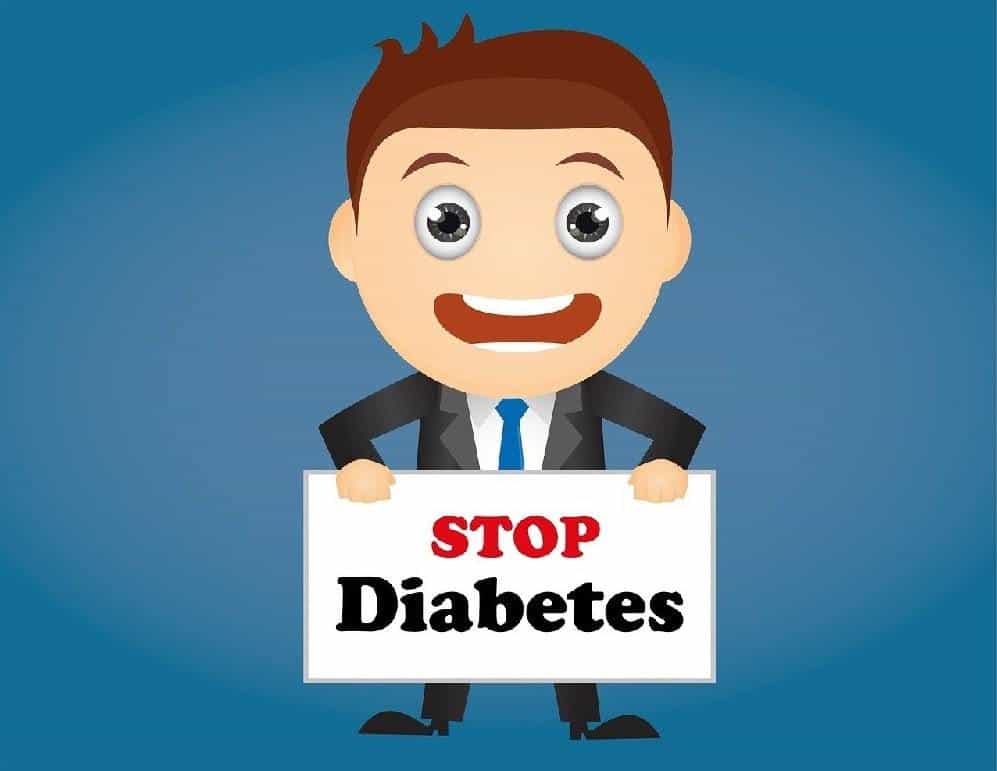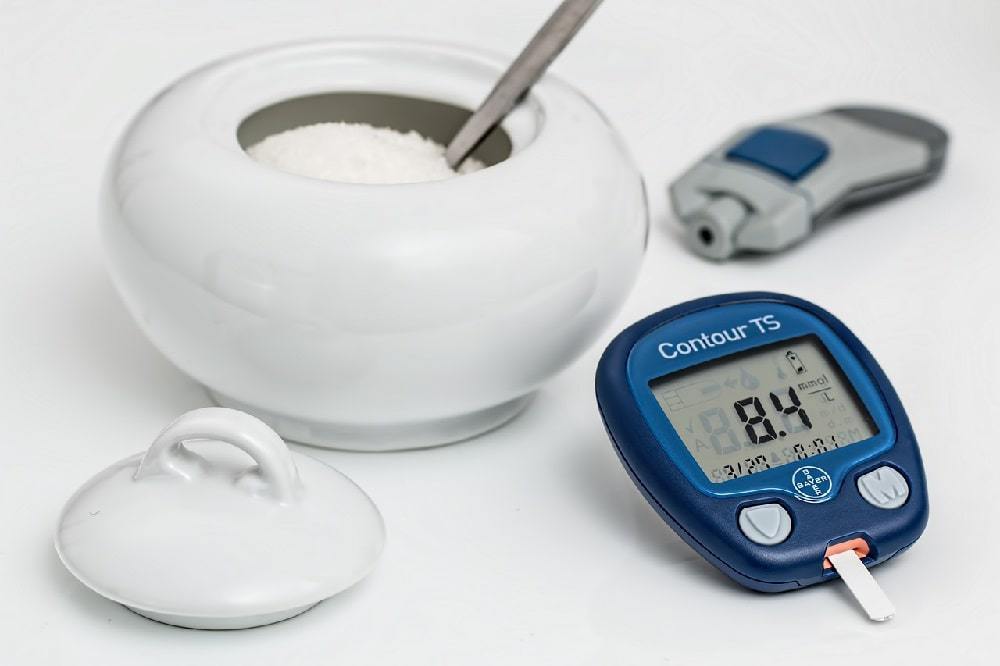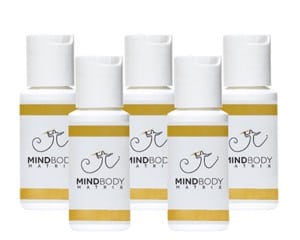
Diabetes is a chronic disease that’s caused by a spike in your blood sugar levels. It’s one of the most common diagnosis in the world, which is what makes it a serious illness.
When left untreated, this can damage several functions of your body like eyes, nerves, kidneys, and other functioning organs.
There are two kinds of diabetes you should be aware of – type 1 and type 2 diabetes.
Between the two, type 2 diabetes is more common, which is when your body no longer reacts to insulin, causing sugar to be stored in your blood.
In this article, we’ll be discussing everything you need to know about diabetes – symptoms, prevention, and nutrition.
Diabetes Type 2 Symptoms
- Constant hunger
- Fatigue and exhaustion
- Lack of energy
- Weight loss
- Frequent urination
- Dehydration
- Dry mouth
- Blurred vision
- Itchy skin
“Think about it: Heart disease and diabetes, which account for more deaths in the U.S. and worldwide than everything else combined, are completely preventable by making comprehensive lifestyle changes – without drugs or surgery”. Dean Ornish
Prevention For Diabetes

If you’re asking the question can diabetes be reversed, there’s no cure for diabetes altogether. However, this doesn’t mean that you can’t take preventive measures to benefit your diabetes.
Your habits and lifestyle can counter the symptoms of diabetes and improve your overall quality of life.
Following are ways to incorporate healthy lifestyle and habit choices for the prevention of diabetes.
1. Exercise
Exercise isn’t just classified as a healthy habit, but it can help you incorporate healthier food choices into your diet.
Exercise and diet are directly linked to one another and there’s a higher chance of healthy eating when you’re physically active.
You’ll be less prone to consuming processed food and sugary foods when you’re having a well-balanced diet.
Exercise is also proven to increase the insulin sensitivity in your body so the more regularly you exercise, your body will require less insulin to keep your blood sugar levels in control.
Studies have shown that individuals who did moderate exercises increased their insulin sensitivity by 51%.
How about trying low activity exercise? Here’s pros and cons of low impact exercise and whether it’s worth giving it a go.
2. Avoid Smoking
Smoking is an extremely dangerous habit to have, especially when you’re diagnosed with diabetes.
Not only can it make your diabetes worse, but it can lead to several other diseases such as lung disease and heart disease.
There’s also a direct link between smoking and diabetes wherein regular smokers and second-hand smokers are more likely to be diagnosed with diabetes than others.
A study showed that an individual’s risk for diabetes lessened by 13% after 5 years of quitting.
This serves as adequate evidence that lifestyle plays a crucial part in diabetes and if you want to reverse the symptoms or improve your quality of life, you need to avoid cigarette smoking or even exposing yourself to second-hand smoke.
3. Eat a Well-Balanced Diet
Nutrition plays a huge role in reducing your diabetes symptoms, which means you can no longer eat the foods you normally do.
You need to consider portion sizes and control yourself from engaging in unhealthy eating diets like midnight snacks and binge eating.
A well-balanced diet consumes healthy portions of carbs, fiber, healthy fats, protein, fiber, fruits, and vegetables.
No matter what diet you follow, even if it’s a low-carb diet, avoid overeating for one specific period at a time.
This also means watching your calorie intake for the day and especially controlling yourself when eating sugar, if you want to control your blood sugar levels.
A two-year study has shown that those who decreased their portion sizes and incorporated healthy eating habits had a decreased risk of diabetes by 46%.
4. Drink Water
You might not realize this immediately, but beverages also play a role in your nutrition.
You can eat a balanced diet all you want, but if you fail to drink water and keep drinking sweetened beverages, then your blood sugar levels will spike.
Water is still the best beverage you can drink to hydrate yourself and avoid any unnecessary sugar and additives in a drink.
Studies show that those who consume more than 2 servings of sweetened beverages have a 99% increase in developing type 1 diabetes and a 20% chance of developing type 2 diabetes.
With all these being said, drinking water is something you need to remember doing every day, with at least 8 glasses per day.
Regularly drinking water is also said to improve your insulin response and blood sugar control.
Want to learn if hydrogen water and alkaline water the same? Here’s what they can do for your health.
5. Avoid a Sedentary Lifestyle
Whatever your nature of work is, ensure that you’re getting any form of physical activity throughout the day.
This doesn’t mean that you have to exercise entirely, but this can also be in the form of yoga, stretching, or even going for a 5-minute walk outside.
As an individual diagnosed with diabetes, you need to ensure that you’re not sitting down for the entire day without even the slightest movement in your body.
There has been a proven direct link between diabetes and a sedentary lifestyle so if you’re not careful, this can worsen your diabetes symptoms.
Another set of studies have shown that those who lead sedentary lifestyles have a 91% risk of being diagnosed with diabetes.
Leading a somewhat active lifestyle is easier said than done, but this will incredibly benefit your diabetes.
Even as simple as standing up from your chair now and then can help you keep your blood sugar levels in control.
6. Drink Coffee or Tea
Even if we’ve insisted that water is still the best beverage you can take, drinking caffeine beverages like coffee and tea can benefit someone with diabetes.
Studies have shown that coffee can have a positive impact on reducing diabetes symptoms or reducing the risk of being diagnosed with diabetes.
Both coffee and tea have several antioxidants that can help against diabetes.
Also, green tea contains a unique antioxidant called epigallocatechin gallate, which can improve insulin sensitivity and control your blood sugar levels.
Of course, this doesn’t mean that you should consume coffee or tea more than you do water.
However, it’s a healthy intake to consume one to two cups of coffee or green tea a day, as long as you don’t include sugar in your drink.
“People who drink four or more cups of coffee a day – it doesn’t matter whether it is caffeinated or decaffeinated – have a reduction in Type 2 diabetes, or a reduced incidence of Type 2 diabetes, of about fifty percent. The same with Parkinson’s, although it is more related to the caffeine”. Gregory Stock
Interested to learn how to make green tea? Check out my brewing method to get the most benefits from it!
Foods That Help Prevent Diabetes
1. Fatty Fish
Fatty fish is one of the healthiest foods to incorporate into your diet. Examples of fatty fish are salmon, tuna, and sardines.
A study conducted in 68 adults who were both obese and overweight proved that incorporating fatty fish in the diet improves blood sugar levels unlike those that only consume lean fish.
Aside from this, fatty fish gives an adequate amount of protein, which is a significant food group that helps satisfy your hunger longer and regulate your blood sugar levels.
You must get your regular intake of fatty fish when you’re diagnosed with diabetes, especially with the high risk of heart disease and stroke.
2. Avocados
Whether as an additional healthy fat source or a healthy snack idea, avocados are beneficial for your physical health.
They have less than 1 gram of sugar and few carbohydrates, which makes them great for meals and snacks.
Especially for individuals diagnosed with diabetes with the tendency to overeat and become obese, avocados are the perfect snack.
A 2019 study conducted in mice proved that avocatin B, a fat molecule in avocados, can reduce insulin resistance.
More research is needed to prove this in humans. However, since one of the ways you can reduce diabetes symptoms is a healthier change of diet and lifestyle, avocados are beneficial for your diet.
3. Eggs
Unlike the negative notion of eggs, they’re an ideal source of protein and they keep you full for longer periods, reducing your tendency for binging on snacks and meals.
Regular consumption of eggs can benefit your insulin sensitivity and reduce the bad cholesterol levels in your body, based on this research.
Furthermore, a 2019 study proved that a high-fat low-carb breakfast meal of eggs can manage the blood sugar levels throughout the day of individuals with diabetes.
4. Greek Yogurt
Greek yogurt is not only one of the most versatile foods you can consume both as a snack or meal replacement, but it’s packed with adequate amounts of protein, healthy fats, carbs, fiber, and even several vitamins and minerals.
Due to the probiotics contained in Greek yogurt, research suggests that it can help regular blood sugar levels and reduce health diseases for those with diabetes.
Another long-term study has proven that eating a daily serving of Greek yogurt can lower your risk of type 2 diabetes by 18%.
Can Diabetes Be Reversed?
Want to learn more from Eric? Get his WildFit program now!
There’s no immediate cure for diabetes, but the symptoms can be reversed or reduced by simply living a healthy lifestyle.
Living with diabetes can be managed when you choose to incorporate healthy diet and lifestyle choices such as eating a balanced diet and being consistent with exercise.
Otherwise, if you keep living a sedentary lifestyle, your diabetes can potentially get worse over time.
Even without medication or surgery, if you’ve made the effort of making healthy lifestyle changes, you can maintain your blood sugar levels effectively.
Related Posts:
Natural Sugar vs Added Sugar: Which Sugar Is Best For You?
Low Impact Exercise Pros and Cons (Everything You Should Know)
Is Hydrogen Water and Alkaline Water the Same? 3 Crucial Differences You Didn’t Know About!
Fasting For Healing: Health Benefits Of Intermittent Fasting






